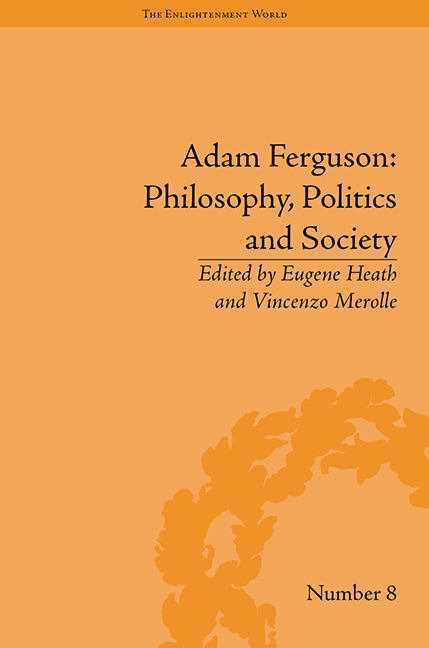1 - Ferguson the Highlander
from I - Life and Works
Summary
Enlightened Edinburgh was in some degree alien territory to Adam Ferguson. He stood to the fore in its intellectual life but he was a Highlander while the rest of the enlightened literati were Lowlanders. The gap between the Highlands and the Lowlands yawned wider in the eighteenth century than it has since or does now. This essay seeks to trace its significance in Ferguson's work.
Like all Highlanders, Ferguson had to come to terms with the huge changes wrought on his native region by the two failed Jacobite rebellions of 1715 and 1745. The ancestral system of clans and chieftains had been decaying before, but with this evidence of its continuing disruptive potential the British state decided to eradicate it. Here historical change, always a matter of interest to the enlightened literati, went into fast-forward. By the time of Ferguson's maturity, the old Highland institutions were dead or dying yet nothing of equal strength and utility had replaced them. The fact that these changes were induced, and had not so far produced an outcome recognizable to stadial theory, may explain his reluctance to make use of them in his work: it was just too early to assess what had been going on. All the same, he offers enough allusion to indicate how he might have interrogated the evidence had it been more amenable to the theory. In retrospect, we may be able to fill in some of the gaps.
Three Frontiers
The place where Ferguson was born in 1723, Logierait in Perthshire, lay just north of what later became known as the Highland line, marking the division from the Lowlands. It was in fact a multiple line. It was in the first place topographical, joining the points where the ground rose from gentler terrain to over 1,000 feet. The Highland massif is dissected by long, narrow glens and Logierait stands near the lower end of two of them. It is not far either from the Pass of Killiecrankie where a road across the mountains debouches into the low country, scene of the great Jacobite victory in 1689.
- Type
- Chapter
- Information
- Adam FergusonPhilosophy, Politics and Society, pp. 9 - 24Publisher: Pickering & ChattoFirst published in: 2014



